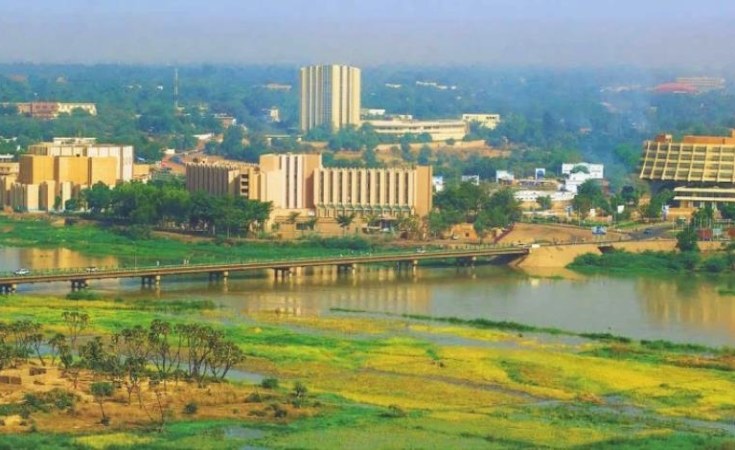Trade between Niger and its neighbours in West Africa has been frozen since regional bloc Ecowas imposed sanctions on the landlocked country when military officers overthrew the elected president in late July. RFI reports from the border between Niger and Nigeria, where the closure has cut off crucial exchanges.
For more than three weeks, Mohamed Abdoullahi has been waiting to return to his home in Niamey, the capital of Niger.
He crossed the border into Nigeria to stock up on shoes and clothing to resell, but found himself stuck when a junta seized power in Niger and Ecowas responded with sanctions.
"They said on Sunday or Monday they would reopen the border," he told RFI's special correspondent Liza Fabbian in the trading town of Sokoto, in the north-west tip of Nigeria. "I don't know if it's true."
Abdoullahi has also heard another rumour. "They're saying that Nigeria is going to attack Niger," he says, referring to Ecowas's threat to send in a joint regional force to restore democracy in Niger if diplomatic efforts fail.
But that can't be true, he told RFI, "because Nigeria and Niger are the same thing".
Lorries backed up
Nigeria ordered its 1,500 km land border with Niger closed in early August, after Ecowas declared sanctions on the military commanders who placed President Mohamed Bazoum under house arrest on 26 July.
Since then, lorries have piled up at Sokoto and other crossing points.
"I can truly say that we're blocked, economically and socially," said Yazid Abdourahamane, a truck driver who lives in Nigeria but is originally from Niger.
"We can't go and see our families. Nothing works, we're eating whatever we can gather because both Niger and Nigeria have totally closed off their borders."
Traders travelling on foot or by donkey cart are still able to get through by paying bribes, as reporters for RFI's sister TV station France 24 observed.
But that's much harder for lorry drivers like Abdourahamane.
"As soon as you go off the legal route, you're taking risks," he told RFI. "We're really afraid."
'Everything is cut off'
Like Abdourahamane, many people in the region have ties on both sides of the border.
"Look at me: my wife is from Niger and I'm from Nigeria," says Abdullahi Shehu, who lives in the nearby border town of Illela.
His wife, Myriam Shehu, says crossing between countries used to be part of everyday life in the region, but not anymore.
"We don't go and buy things in Konni," she told RFI, referring to Birni-N'Konni, a market town on the Niger side. "And people in Konni don't come here to shop either."
Official trade between Nigeria and Niger was worth more than $226 million in 2022, according to statistics from the International Trade Centre.
The bulk of it is Nigerian exports to Niger, which depends heavily on imports from other countries - especially Nigeria, its biggest trading partner and an important source of grain and other staple foods.
"Everything is cut off. Food is running low," reports Myriam Shehu.
She is concerned about the threat of an armed conflict in Niger making the situation worse.
"Now they're talking about war," she says. "Are people from Konni going to flee over here? We don't know what we'll do."


